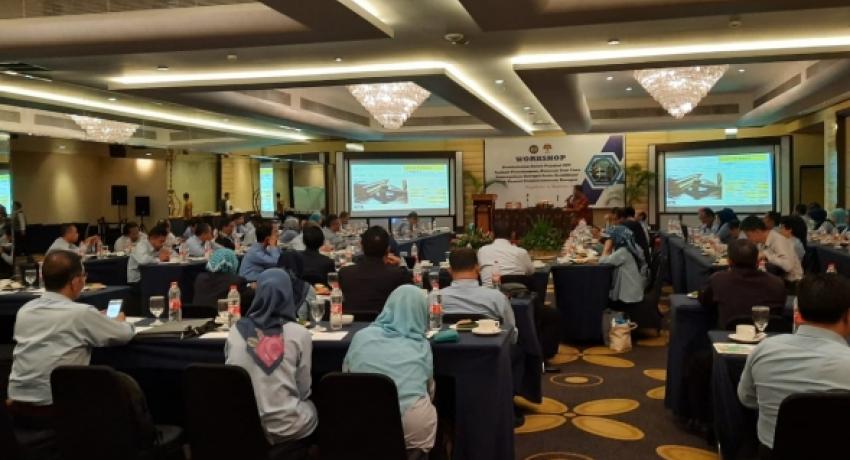To give better understanding and knowledge about the danger of corruption and gratification, UNY officials are invited to participate in Workshop on Understanding, Limitation and Prevention of Corruption and Gratification by Corruption Eradication Commission or KPK at New Saphir Yogyakarta Hotel (16/12/2019).There are 100 participants attend the workshop. Edi Purwanta, Vice Rector for General affairs and Finance UNY in his remark hoped that structural officials and treasurers have to be more careful especially related with gratification issues.
According to speaker from KPK, gratification is every gifts received by the Civil Servants or State Administrators. At this point, gratification has a neutral meaning and do not relate with anything prohibited or wrong. In broader meaning, gratification may come as provision of goods, rebates (fees), commissions, loan without interest, travel tickets, lodging facilities, travel tours, free medical treatment, and other facilities. The gratuities were received both domestically and abroad and which were carried out using electronic or non-electronic means.
Speakers from the KPK, Anjas Prasetiyo and Kurniawantiningrum Raharja conveyed to facilitate understanding of gratification, things that should not be accepted (a) related to providing services to the public outside of legal acceptance, (b) related to tasks in the budget preparation process outside the revenue legal, (c) related to the duties in the process of inspection, audit, monitoring and evaluation outside the legal acceptance, (d) related to the implementation of official travel outside the official / official receipt from the agency, (e) in the process of acceptance / promotion / employee mutation. (f) in the process of communication, negotiation and implementation of activities with other parties related to the implementation of their duties and authorities, (g) as a result of cooperation agreements / contracts / agreements with other parties, (h) as an expression of thanks before, during or after the process procurement of goods and services, (i) constitute gifts or souvenirs for employees / supervisors / guests during official visits, (j) constitutes entertainment facilities, tourist facilities, vouchers by officials / employees in activities related to carrying out their duties and obligations with grantor irrelevant to the assignment received, (k) in order to influence the policies / decisions / treatment of the authorities, (l) in the implementation of work related to the position and contrary to the obligations / duties of officials / employees, etc.
In the final section, a number of questions can be asked to yourself when considering whether we can receive a gift or not. This method is termed PROVE IT. Purpose (what is the purpose of this gift?), Rules (how does the law regulate gratification), Openness (how is the substance of the gift given, is the gift given secretly?), Value (what is the value of the graph?), Ethics (is it Your personal moral values allow the acceptance of the gift?), Identity (does the giver have a relationship of position, prospective partner, or partner agency?), Timing (does gratuity relate to decision making, service or licensing?). (Sdr; Tj.Lak).





